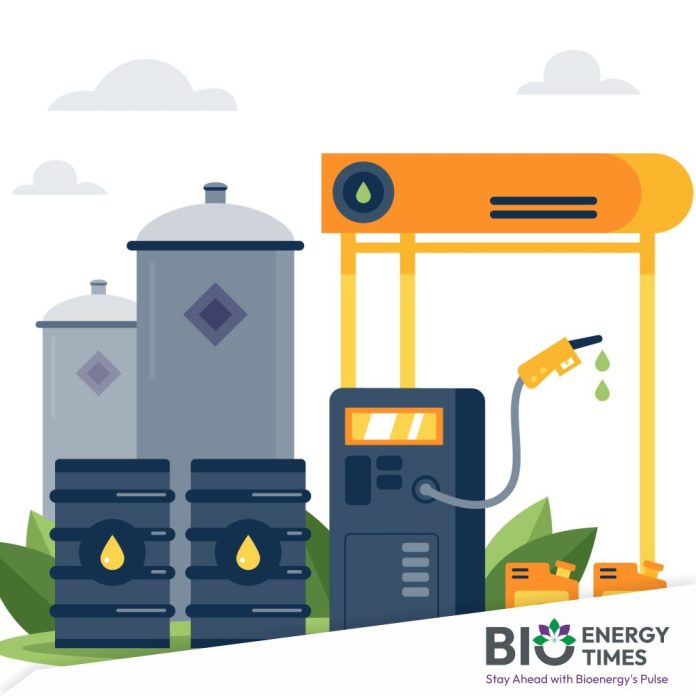Local coconut industry stakeholders are expressing mixed reactions to the Philippine government’s proposal to suspend the planned increase of the coco methyl ester (CME) blend in diesel to 4 percent (B4) by October 2025. The move, initiated by the Philippine Coconut Authority (PCA), aims to prevent potential inflationary pressures, reports Malaya Business Insight.
The PCA, which is part of the National Biofuels Board (NBB), was the first to announce the potential suspension last week.
However, Leonardo Montemayor, chairman of the Federation of Free Farmers (FFF), warned on Sunday that such a decision might “sacrifice” the well-being of coconut farmers. He explained that increasing the biodiesel blend was initially intended to provide local coconut farmers with a larger, more diverse, and profitable market for their produce, encourage greater coconut production, and leverage the environmental benefits of biofuels.
“Right now, the blend is at 3 percent. So, suspending an increase in the blend indicates that the government is not serious in implementing the Biofuels Act. Farmers will again be sacrificed under the mantra of ‘preventing’ inflation,” Montemayor stated.
In contrast, Danilo Fausto, president of the Philippine Chamber of Agriculture and Food Inc., described the planned suspension as “appropriate.” He argued that the quality and quantity of local coconut production need to improve first to sustain the Biofuels Act program effectively.
“I think the decision to suspend the implementation of the biodiesel blend is appropriate until the time that the coconut industry has proven that it has enough supply to support and sustain the policy,” Fausto expressed.
Dean Lao Jr., president of Chemrez Technologies Inc., also supported the postponement. However, he emphasized that the government must provide a clear timeline for implementing the higher blend, as the industry requires at least five months to prepare and comply with the requirements.
“Coconut is our feedstock for biodiesel and the El Niño of 2024 adversely affected supplies in 2025. The NBB and PCA have evaluated the supply situation and have given a sensible recommendation to postpone B4,” Lao said. He added, “The industry awaits a more definite date for the resumption of the B4 mandate from the NBB. It needs at least five months in advance to prepare for implementation. The progression towards B5 (5 percent biodiesel blend) remains a sound and sustainable solution for the Philippines to attain its economic, environmental, and health goals.”
Jayson Cainglet, executive editor of the Samahang Industriya ng Agrikultura, acknowledged understanding the government’s decision to suspend the B4 blend due to insufficient local copra supply. However, he pointed out that an increased biodiesel blend would have helped coconut producers by boosting farmgate prices during periods of collapse.
“To implement it now will make fuel pump prices more expensive — again as policies tend toward supporting consumers’ concern… Consumers are always being protected, more often, at the expense of local producers,” Cainglet observed.
As of Friday, June 13, the Department of Energy (DOE) confirmed that the suspension of the 4-percent CME blend (B4) has been virtually approved and is awaiting final signatures from officials of all involved agencies to be enforced.
The DOE Secretary chairs the NBB, which includes members from the PCA, Department of Trade and Industry, Department of Agriculture, Department of Finance, Department of Labor and Employment, Department of Science and Technology, and the Sugar Regulatory Administration.
DOE Undersecretary Alessandro Sales stated that with the B4 implementation virtually suspended for October 2025, the scheduled B5 upgrade by October 2026 has also been put on hold.
“This was decided because of the prevailing high cost of coconut oil, which is the principal feedstock for our CME as the biodiesel component in the diesel being sold in the Philippines,” Sales explained.
Sales noted that at the beginning of 2024, the international price of coconut oil was approximately $1,100 per metric ton (MT) but gradually surged to a peak of over $3,000 per MT. “The price last week has now subsided a bit, just below $3,000 per MT. But still, it is a significant increase, and the increase actually translates to a higher cost of diesel at the pump because of the mandate, and increasing the mandate now to B4 would add to this price pressure,” Sales elaborated.
The DOE had previously indicated that an increase in the CME blend would benefit coconut farmers, biodiesel producers, and other stakeholders by creating a ready market for an estimated 900 million additional coconut nuts needed to produce 100 to 120 million liters of CME for a 1-percent mandatory increase.
However, the latest data from the Philippine Statistics Authority shows that the country produced 14.5 million MT of husked coconut in 2024, a 2.6 percent decrease from 14.89 million MT in 2023. With this reduced local production due to the 2024 El Niño, meeting the requirements of CME B4 would necessitate more coconut oil imports.
A report by the US Department of Agriculture (USDA) from April 2025 projected that the Philippines would produce 1.63 million MT of coconut oil between October 2024 and September 2025. Of this volume, the USDA report indicated that the Philippines would export 1.13 million MT but would still need to import 80,000 MT. For the same period, the USDA projected domestic consumption of coconut oil at 560,000 MT, with 220,000 MT for food use and 340,000 MT for industrial use.















